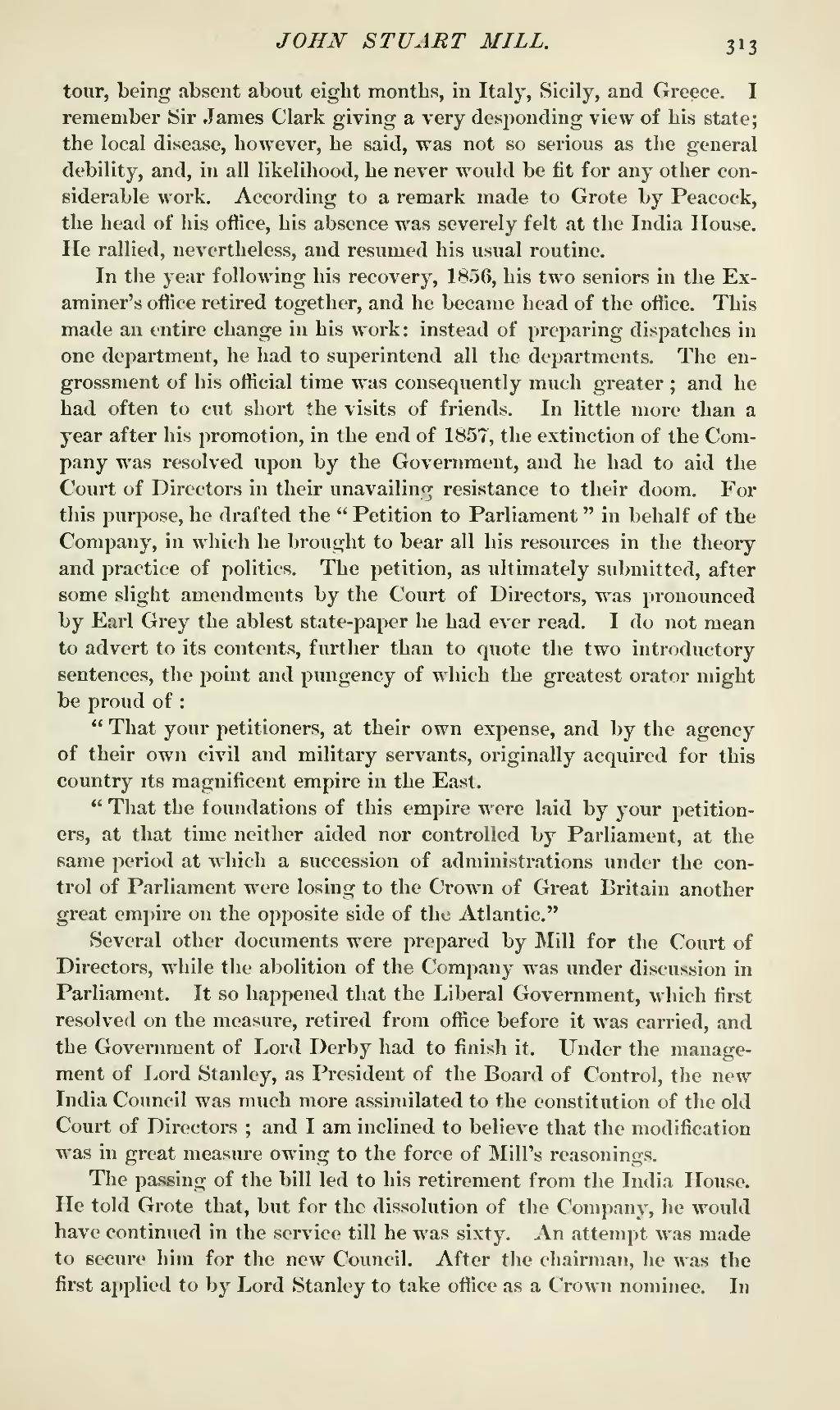tour, being absent about eight months, in Italy, Sicily, and Greece. I remember Sir James Clark giving a very desponding view of his state; the local disease, however, he said, was not so serious as the general debility, and, in all likelihood, he never-would be fit for any other considerable work. According to a remark made to Grote by Peacock, the head of his office, his absence was severely felt at the India House. He rallied, nevertheless, and resumed his usual routine.
In the year following his recovery, 1856, his two seniors in the Examiner's office retired together, and he became head of the office. This made an entire change in his work: instead of preparing dispatches in one department, he had to superintend all the departments. The engrossment of his official time was consequently much greater; and he had often to cut short the visits of friends. In little more than a year after his promotion, in the end of 1857, the extinction of the Company was resolved upon by the Government, and he had to aid the Court of Directors in their unavailing resistance to their doom. For this purpose, he drafted the "Petition to Parliament" in behalf of the Company, in which he brought to bear all his resources in the theory and practice of politics. The petition, as ultimately submitted, after some slight amendments by the Court of Directors, was pronounced by Earl Grey the ablest state-paper he had ever read. I do not mean to advert to its contents, further than to quote the two introductory sentences, the point and pungency of which the greatest orator might be proud of:
"That your petitioners, at their own expense, and by the agency of their own civil and military servants, originally acquired for this country its magnificent empire in the East.
"That the foundations of this empire were laid by your petitioners, at that time neither aided nor controlled by Parliament, at the same period at which a succession of administrations under the control of Parliament were losing to the Crown of Great Britain another great empire on the opposite side of the Atlantic."
Several other documents were prepared by Mill for the Court of Directors, while the abolition of the Company was under discussion in Parliament. It so happened that the Liberal Government, which first resolved on the measure, retired from office before it was carried, and the Government of Lord Derby had to finish it. Under the management of Lord Stanley, as President of the Board of Control, the new India Council was much more assimilated to the constitution of the old Court of Directors; and I am inclined to believe that the modification was in great measure owing to the force of Mill's reasonings.
The passing of the bill led to his retirement from the India House. He told Grote that, but for the dissolution of the Company, he would have continued in the service till he was sixty. An attempt was made to secure him for the new Council. After the chairman, he was the first applied to by Lord Stanley to take office as a Crown nominee. In

